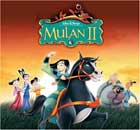Society
Controls urged on drug ingredient
By Shan Juan (China Daily)
Updated: 2009-12-09 13:59
China's top drug authority Tuesday vowed to tighten control over the production and sale of medicines containing ephedrine, an ingredient used to process the stimulant drug methamphetamine.
The State Food and Drug Administration (SFDA) made the announcement as 85 suspects involved in what is being referred to as one of the country's largest drug cases went on trial.
Police had busted five drug-manufacturing gangs and smashed eight illegal drug-processing factories nationwide, confiscating 415 kg of ephedrine.
The suspects illegally obtained medicines containing ephedrine in large quantities through registered pharmaceutical companies with the sole purpose of producing methamphetamine, a banned drug commonly known as ice.
"Whether companies that produce the medicines were involved with the gangs or not is still under investigation," SFDA spokeswoman Yan Jiangying told reporters.
| ||||
The SFDA would "cap the total annual output of such medicines, closely track each purchase, impose limits on purchases at one time, and prohibit transactions in cash," she said.
"SFDA will work closely with the police to ensure medicines with ephedrine do not get into the hands of those who would use the substance to produce banned drugs."
Ephedrine is mostly found in medicines for cough and cold, most of which are sold over the counter without prescriptions.
It was listed as a drug precursor chemical, subject to strict control, in 2005.
Driven by skyrocketing demand of new type of drugs, particularly ice, in China, drug traffickers started purchasing medicines that contain ephedrine to manufacture the banned substance, said Yang Maobin, director of the Yunnan Daytop Drug Abuse Treatment and Rehabilitation Center.
"At times, even drug users purchase medicines containing ephedrine from the pharmacies to get high," he said, adding ephedrine could seriously affect a human's nervous system.
Giovanni Nicotera, project manager with the United Nations Office on Drugs and Crime, said certain "new drugs including ice", increasingly spreading throughout the developing world.











